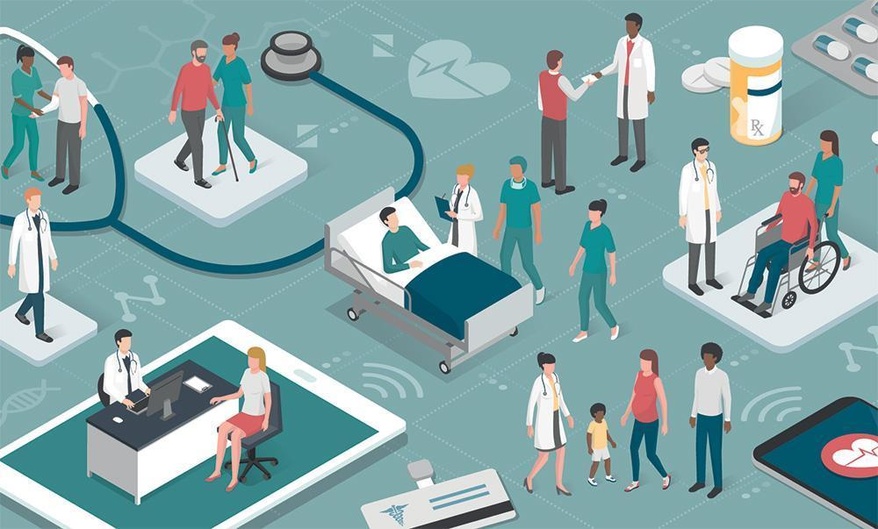
A healthcare provider may ask questions about the patient's symptoms and those of family members. The doctor might also request records from the patient’s primary care physician. An autopsy may be required in some cases to confirm the diagnosis of Alzheimer's. However, many doctors still prefer the traditional methods of diagnosis. This article will examine the differences between each type of test. Let's take a closer look at the three main methods used to diagnose Alzheimer's disease.
Cerebrospinal fluid examination
A recent study examined the accuracy of cerebrospinal fluid analysis in the diagnosis of Alzheimer's disease. The researchers analyzed data from 1,016 patients that had undergone lumbar puncture in order to determine if they had mild cognitive impairment or dementia. For analysis, cerebrospinal fluid samples from the patients were sent to a commercial laboratory. The researchers found that bamyloid(1-42) levels are significantly lower in patients who have EAD than in those who have LAD.

Memory tests
Recent studies have found that simple memory tests may give early indications of Alzheimer's disease. A study in the Journal of Neurology found that people who performed poorly on memory tests were more likely to develop beta-amyloid plaque, a biomarker for Alzheimer's. Low memory test scores may help in diagnosing the disease earlier. The test had some limitations, such as low education. Such a study could be a step in finding new treatments for patients suffering memory loss.
Brain scans
Although there are many types of dementia, doctors will often run brain scans before diagnosing other conditions. These scans can detect brain changes and functions. A brain scan can also show signs of Alzheimer's, such a decrease in cerebral cortex size. There are many brain scans available that can assist in diagnosing the condition. Learn more about the advantages and drawbacks of brain scans.
Autopsy
A complete autopsy is required to confirm the diagnosis of Alzheimer's. Even with the most reliable tests, Alzheimer's symptoms can be difficult or even obscured by other disorders. Tests such as blood tests and urine tests can rule out other conditions like diabetes, infection, kidney disorder, nutritional deficiencies, thyroid hormone abnormalities, or diabetes. Brain imaging can also be used to rule out strokes, tumors, and blood clots.

Mood assessment
An important part of managing Alzheimer's disease is the use of mood assessments in diagnosis. The current mood assessment methods have been tested on many different individuals and in various settings. The AD-RD Mood Scale, which measures positive and sour moods, is one example. A mood assessment can be used to help caregivers distinguish between Alzheimer’s disease and other forms.
FAQ
What will happen to the health care industry if Medicare is eliminated?
Medicare is an entitlement program that provides financial aid to low income individuals and families who can not afford their premiums. This program is used by more than 40 Million Americans.
Millions of Americans will lose coverage if the program is not implemented. Some private insurers may stop offering policies to pre-existing patients.
What is the distinction between public and private health?
In this context, the terms refer both to the decisions made and those of legislators by policymakers. These policies affect how we deliver healthcare services. One example is the decision to build an additional hospital. This decision could be made locally or regionally. Local, regional, and national officials may also decide whether employers should offer health insurance.
What is the difference in the health system and the health care services?
Health systems can be more than just providing healthcare services. They encompass all aspects of the life context, including education, employment and social security.
Healthcare services, on other hand, provide medical treatment for certain conditions like diabetes, cancer and mental illness.
They may also refer the provision of generalist primary health care services by community-based professionals working under an NHS hospital trust.
What do we need to know about health insurance?
Keep track if you have any health insurance. Ask questions if you are unsure about your plan. Ask your provider for clarification or contact customer service if you are unsure.
Remember to take advantage of your plan's deductible when it comes time to use your insurance. Your deductible refers to the amount you pay before your insurance starts covering the rest.
How can I ensure that my family has access health care of the highest quality?
Most likely, your state has a department or health that ensures everyone has affordable healthcare. Some states also offer coverage for families with low income children. For more information on these programs, contact the Department of Health of your state.
Statistics
- Price Increases, Aging Push Sector To 20 Percent Of Economy". (en.wikipedia.org)
- The healthcare sector is one of the largest and most complex in the U.S. economy, accounting for 18% of gross domestic product (GDP) in 2020.1 (investopedia.com)
- About 14 percent of Americans have chronic kidney disease. (rasmussen.edu)
- Over the first twenty-five years of this transformation, government contributions to healthcare expenditures have dropped from 36% to 15%, with the burden of managing this decrease falling largely on patients. (en.wikipedia.org)
- Foreign investment in hospitals—up to 70% ownership- has been encouraged as an incentive for privatization. (en.wikipedia.org)
External Links
How To
How do I find home care services
Home care facilities assist people who require help at home. This includes elderly people who do not want to leave their homes, disabled people who cannot move around independently, and those who suffer from chronic illnesses such as Alzheimer's disease. The services offered by these facilities include personal hygiene, meal preparation, laundry, cleaning, medication reminders, transportation, etc. They often work in close collaboration with social workers, medical professionals, and rehabilitation specialists.
You can find the best home care services provider by asking friends, family and/or reading reviews on the internet. After you have identified a few providers, you can inquire about their experience and qualifications. Providers should be flexible in their hours so they can fit into your busy schedule. Check to see if there is an emergency response available 24/7.
Your doctor or nurse might be able to refer you. If you don’t know where to begin, search online for “home health care” or “nursing home”. You could also use websites such as Yelp, Angie's List and HealthGrades or Nursing Home Compare.
You may also call your local Area Agency on Aging (AAA) or Visiting Nurse Service Association (VNA) for additional information. These organizations will keep a list of local agencies who specialize in home care.
Many home care agencies charge high rates for their services. This makes it important to find the right agency. Some agencies can charge as much as 100% of the patient's income. Avoid this problem by selecting an agency that has been highly reviewed by the Better Business Bureau. Ask for references of previous clients.
Some states require home care agencies registered with the State Department of Social Services. Find out the requirements for agency registration in your area by contacting your local government.
There are several things to keep in mind when choosing a home care agency :
-
Be cautious of companies that require you to pay upfront in order to receive services.
-
It is important to find a trustworthy and established company.
-
You should have proof of insurance, especially if your payment is out of pocket.
-
You must ensure that the state licenses your agency.
-
Ask for a written agreement outlining all costs of hiring the agency.
-
Confirm that after discharge, the agency will provide follow-up visits.
-
Ask for a listing of certifications and credentials.
-
Don't sign anything until you have read it.
-
Take the time to read all fine print.
-
Verify that the agency is insured and bonded.
-
Ask how long this agency has been around.
-
Verify that the State Department of Social Welfare licenses the agency.
-
Find out if there have been any complaints about the agency.
-
For information on home care agencies, contact your local government department.
-
Ensure that the staff member answering the phone is qualified to answer questions about home care.
-
For tax information on home care please consult your accountant.
-
Always obtain at least three quotes for every agency providing home care services.
-
You can choose the lowest price, but not less than $30 an hour.
-
You may have to pay multiple visits to a home-care agency every day.
-
It is important to carefully read contracts before you sign them.